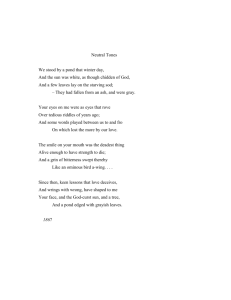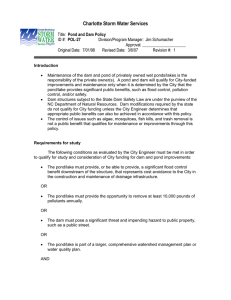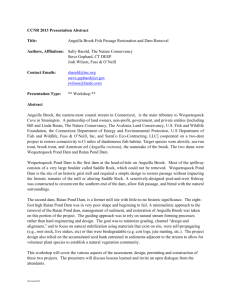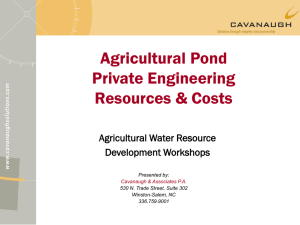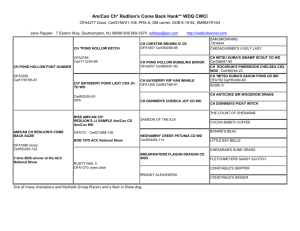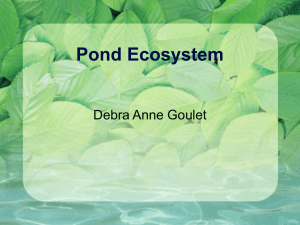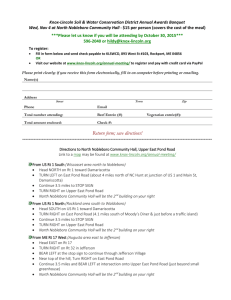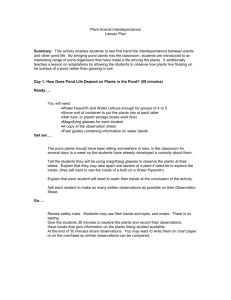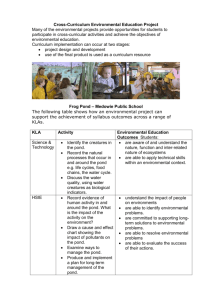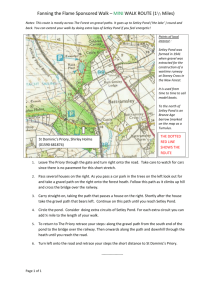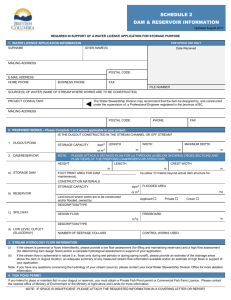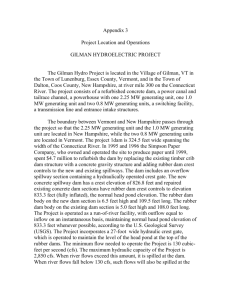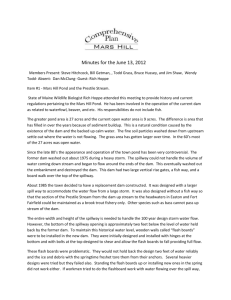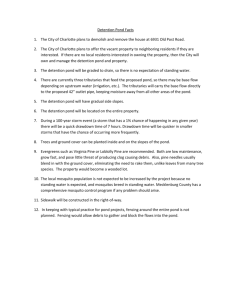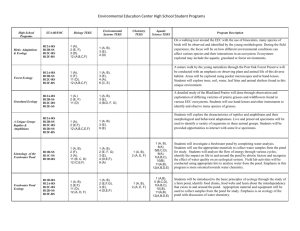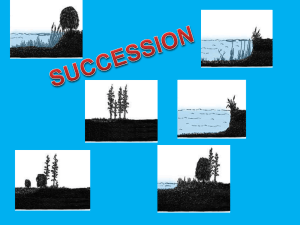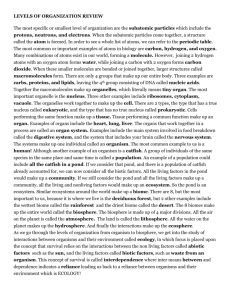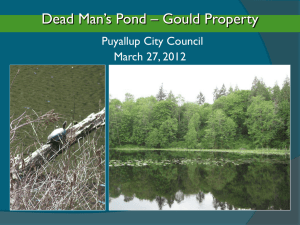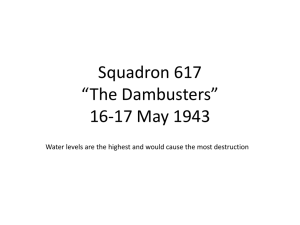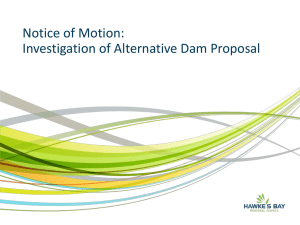Students of the Masters program
advertisement
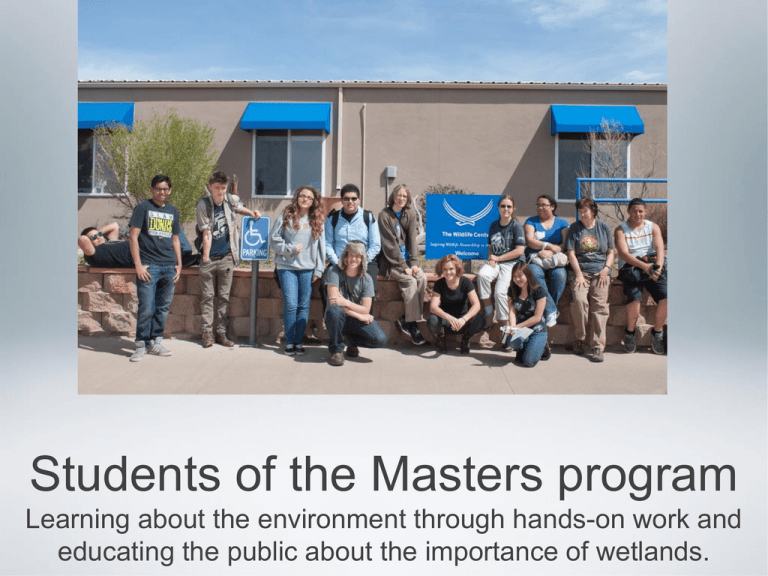
Students of the Masters program Learning about the environment through hands-on work and educating the public about the importance of wetlands. Students making plans. Future location of the wetland Learning about wildlife and the importance of wetlands Getting to work. The first step was clearing out the bottom of the pond and checking our gray-water sources. Ingredients for a dam: Bobcat (1) Shovels (3-4) Dirt (several tons) Sprinkle with a dose of good humor. Building the dam. It needed to be tall and strong, so for first the time we recruited the help of machinery. We did our best to keep the pond slopes gentle so plants could grow. We rented a compactor to make sure our dam wouldn’t collapse. Students and teachers alike pitched in to carry it. Once we were done with the dam, we did percolation tests on the soil and determined that it would not hold water very well. We proceeded to get a pond liner and practiced our teamwork in spreading it out and securing it. Next, everyone gets their plumbing education. To put grey-water in the pond, we needed to tap into the water lines coming from the main building. This meant long pipes, deep holes, and lots of practice fitting PVC together. Thanks to the diligent work of our engineer student, and after a day of trial and error, we managed to get our pipes The end is in sight! Water is almost ready to go into the pond, so now is the time for planting. We took plants from a natural New Mexican wetland and transplanted them into ours. The water will ultimately support all kinds of vegetation, but we started it with cottonwood seedlings, cattails, and willows. Next came the details. We covered our pipes, made a few business calls, and coated our dam with sticks to represent a natural beaver dam. The miracle moment: WE HAVE WATER! After taking a moment to pause and enjoy the filling pond, we found more work to do. A last few changes to our planting arrangements, and then it was time for water testing. We did temperature, dissolved oxygen, phosphates, and nitrates. We did it Our plants are growing, and the pond is slowly filling up.
